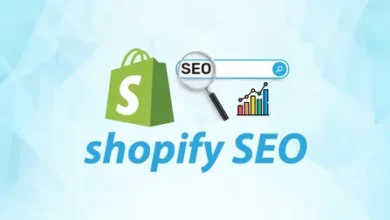How Tech Companies Are Revolutionizing Food Delivery App Development

The food delivery industry has gone through a complete transformation and tech companies are at the heart of it.
Gone are the days when a food delivery app was just about showing a menu, placing an order, and waiting for a knock at the door. Today, it’s about real-time logistics, personalized experiences, efficient operations, and data-backed decision-making. As demand skyrockets, food delivery app development has become a high-stakes game of innovation and speed. And the companies building these apps are pushing boundaries like never before.
Whether you’re a startup founder or part of a restaurant group going digital, working with the right food delivery app development company is now one of the most strategic decisions you’ll make. Companies like Appkodes, for instance, are helping reshape how the food delivery tech ecosystem works not just by writing code, but by solving business challenges from the ground up.
Here’s a closer look at how tech innovators are revolutionizing food delivery app development in 2025 and why it’s changing the game for everyone involved.
1. Smarter Algorithms Are Improving Delivery Efficiency
At the core of every great delivery experience is logistics and that’s where tech companies are investing heavily.
Today’s advanced algorithms can:
- Calculate the fastest delivery routes in real time
- Dynamically reassign orders based on traffic and availability
- Batch multiple deliveries for greater efficiency
- Predict peak times using historical data
This isn’t science fiction. It’s what modern food delivery app development looks like. When implemented correctly, these smart systems reduce delays, lower costs, and enhance customer satisfaction, all without needing constant manual intervention.
2. AI Is Powering Hyper-Personalized User Experiences
People expect more from their apps today. They want them to remember preferences, recommend meals they’re likely to enjoy, and notify them at just the right time. That level of personalization is only possible with artificial intelligence.
Tech companies are building AI models into delivery platforms to:
- Suggest dishes based on previous orders or browsing habits
- Send targeted promotions with better conversion rates
- Offer predictive search that understands local language and slang
- Automatically apply coupons and loyalty rewards
These features don’t just delight customers they drive repeat business. That’s why AI is no longer a bonus in food delivery apps, it’s becoming a must.
3. Cloud-Based Architecture Enables Real Scalability
What happens when you go from 100 orders a day to 10,000? Without cloud-ready infrastructure, the answer is often downtime, glitches, or system crashes.
This is why today’s leading food delivery app development companies use cloud-native architecture. This modern approach allows apps to:
- Handle spikes in traffic without slowing down
- Add new features without needing complete rebuilds
- Update in real time across all user devices
- Securely manage user and payment data at scale
Companies like Appkodes leverage these technologies to give their clients the freedom to grow whether that’s in one city or across continents.
4. Real-Time Features Are Now Standard Not Optional
From live order tracking to real-time chat with delivery partners, instant communication has become a basic expectation. But building it properly is still a challenge.
Tech companies now use:
- WebSockets and Firebase for lightning-fast updates
- Background location tracking optimized for mobile devices
- Dynamic status syncing across customer, driver, and vendor apps
These aren’t flashy extras, they’re what customers trust to stay informed and feel in control. Food delivery apps without strong real-time capabilities often get left behind.
5. Developer-Friendly APIs Are Creating Ecosystems – Not Just Apps
Modern food delivery isn’t isolated. It’s part of a bigger ecosystem of tools: payment gateways, marketing platforms, CRMs, and logistics systems.
That’s why food delivery app development today revolves around APIs. They make it easier to:
- Integrate with Stripe, Razorpay, PayPal, and other payment tools
- Connect with restaurant POS systems for order syncing
- Plug into SMS, email, and push notification services
- Enable third-party analytics and campaign tracking tools
This API-first mindset helps businesses expand faster and customize their tech stack without rewriting everything from scratch.
6. UX Design Is More Inclusive and Thoughtful
It’s not just about aesthetics anymore. Today’s app users expect thoughtful, inclusive design, whether they’re customers, delivery drivers, or restaurant vendors.
Tech companies are investing in:
- Multilingual interfaces for global audiences
- Accessibility for users with disabilities
- Low-bandwidth modes for slower internet regions
- Easy-to-navigate dashboards for non-technical users
At Appkodes, for example, we’ve helped businesses in emerging markets launch apps that feel just as polished and intuitive as global giants, because good design shouldn’t be reserved for big cities.
7. Real-Time Analytics Is Empowering Smarter Decision-Making
Instead of waiting for end-of-week reports, businesses now want live dashboards that show how things are going right now.
Modern food delivery app platforms now include:
- Order heatmaps to identify high-performing areas
- Drop-off and conversion tracking to improve UX
- Delivery time analysis to optimize logistics
- Revenue and commission breakdowns by vendor
This shift from static reporting to dynamic insight is helping business owners act faster, experiment smarter, and grow with confidence.
8. Post-Launch Support Is Finally Being Taken Seriously
Historically, many businesses were left stranded after app launch, struggling with bugs, updates, and app store rejections.
Thankfully, more tech companies now offer:
- Regular maintenance packages
- Support for OS updates and SDK upgrades
- Dedicated success teams to handle performance monitoring
- Roadmaps for long-term feature rollouts
At Appkodes, we’ve seen that consistent post-launch support isn’t just helpful, it’s mission-critical, especially when platforms serve thousands of users daily.
Final Thoughts: It’s Not Just About Building Apps – It’s About Building the Future
The next generation of food delivery apps won’t be built by just any developer. They’ll be crafted by tech partners who understand your business goals, your customer expectations, and the fast-moving ecosystem you’re part of.
That’s why choosing the right food delivery app development company matters more than ever. Companies like Appkodes, who combine innovation with reliability are helping startups and enterprises build platforms that aren’t just competitive, but future-proof.
In 2025 and beyond, your food delivery app is more than a tool. It’s your storefront, your logistics arm, your data hub, and your growth engine – all in one. So don’t settle for generic. Look for partners who see the full picture and are ready to build with you.



